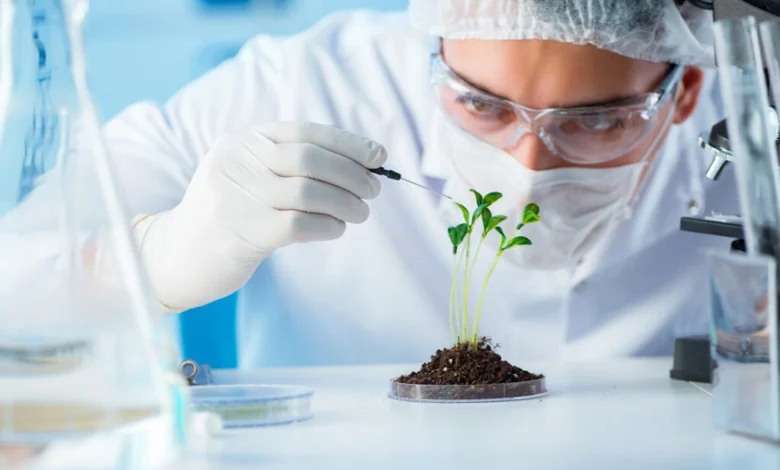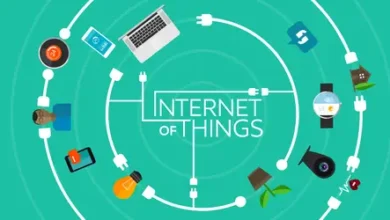What is Biotechnology: A Definitive List of Breakthroughs

A biotechnological breakthrough is at the forefront of innovation, driving progress in healthcare, agriculture, and environmental sustainability. From gene editing to synthetic biology, these breakthroughs are transforming industries and improving lives. Check the article to know more advancements in biotechnology and healthcare. Below is a list of the top biotechnological breakthroughs shaping the future.
Top 10 Biotechnology Breakthroughs
| Serial No. | Breakthrough | Impact |
|---|---|---|
| 1 | CRISPR-Cas9 Gene Editing | This technology has vast potential in treating genetic disorders, improving crop resilience, and advancing personalized medicine. |
| 2 | mRNA Vaccines | This technology changed the landscape of vaccine development and is being explored for use in vaccines for other diseases like cancer. |
| 3 | CAR-T Cell Therapy | CAR-T therapy has shown promising results in treating certain blood cancers, paving the way for new cancer treatments. |
| 4 | Synthetic Biology | This breakthrough offers applications in biofuel production, biodegradable plastics, and lab-grown meat. |
| 5 | Organoids | They are used in drug testing and personalized medicine, offering more accurate models of human biology than traditional animal testing. |
| 6 | Gene Therapy | It holds promise for treating inherited disorders, cancer, and viral infections. |
| 7 | Lab-Grown Meat | This innovation could drastically reduce the environmental impact of meat production while addressing food security challenges. |
| 8 | Next-Generation Sequencing (NGS) | It is essential for precision medicine, genetic research, and understanding complex diseases like cancer. |
| 9 | 3D Bioprinting | This technology could lead to breakthroughs in organ transplants, wound healing, and regenerative medicine. |
| 10 | Microbiome Research | Understanding the microbiome could lead to treatments for digestive issues, mental health conditions, and autoimmune diseases. |
1. CRISPR-Cas9 Gene Editing
CRISPR-Cas9 is a revolutionary gene-editing tool that allows scientists to alter DNA with precision. This technology leverages a natural system found in bacteria. Here the Cas9 protein cuts DNA at a specific location, guided by a customized RNA sequence. It has wide-ranging applications, from correcting genetic mutations that cause disease to enhancing agricultural crops. It even helps potentially eradicate diseases like malaria by editing the DNA of mosquitoes.
2. mRNA Vaccines
mRNA vaccine technology, as showcased during the COVID-19 pandemic, has transformed the speed at which vaccines can be developed and deployed. Unlike traditional vaccines that use inactivated viruses or viral proteins, mRNA vaccines use synthetic messenger RNA to instruct cells to produce a protein similar to the virus, triggering an immune response. This innovation has opened new avenues for vaccine development against other diseases like influenza, cancer, and more.
3. CAR-T Cell Therapy
CAR-T cell therapy is a cutting-edge treatment in cancer therapy that involves extracting a patient’s T-cells. This biotechnological breakthrough genetically modifies them to better recognize and attack cancer cells, and reinfusing them into the patient. This personalized treatment has shown remarkable success in treating blood cancers such as leukemia and lymphoma. Thereby offering hope where other treatments have failed. Research is underway to expand its effectiveness to solid tumors.
4. Biotechnology Breakthrough – Synthetic Biology
Synthetic biology combines biology and engineering to design new biological parts and systems or to redesign existing biological systems. It holds great promise for innovations in biofuels, drug production, and even environmental applications like biodegradable plastics. The ability to create custom organisms could revolutionize industries, providing sustainable solutions to modern challenges.
5. Organoids
Organoids are three-dimensional, miniaturized versions of organs grown in vitro from stem cells. They replicate many of the functions and structures of real organs. Thereby making them invaluable tools for studying diseases, testing drugs, and even exploring personalized medicine. Organoids have been successfully created for various organs. This includes the brain, liver, and kidney, offering insights into organ development and diseases such as cancer and Alzheimer’s.
6. Gene Therapy
Gene therapy involves altering or replacing defective genes to treat or prevent diseases. By introducing a functional copy of a gene into a patient’s cells, gene therapy can correct the underlying cause of genetic disorders. It has shown promise in treating conditions like hemophilia, cystic fibrosis, and certain forms of inherited blindness, and ongoing research is expanding its potential to combat a wide range of diseases.
7. Biotechnology Breakthrough – Lab-Grown Meat
Lab-grown meat, also known as cultured or cell-based meat, is produced by growing animal cells in a controlled environment. This biotechnological breakthrough offers a sustainable alternative to traditional meat production, significantly reducing the environmental impact and eliminating the ethical concerns associated with factory farming. As the technology advances, lab-grown meat is becoming closer to being commercially viable, potentially transforming the global food industry.
8. Next-Generation Sequencing (NGS)
Next-generation sequencing (NGS) is a powerful tool for rapidly sequencing entire genomes, allowing scientists to analyze genetic information on an unprecedented scale. This technology has revolutionized fields such as cancer genomics, personalized medicine, and evolutionary biology, enabling researchers to identify genetic mutations, understand disease mechanisms, and tailor treatments to individual patients’ genetic profiles.
9. 3D Bioprinting
3D bioprinting is a biotechnological breakthrough that enables the creation of complex tissue structures using bio-inks composed of living cells. By printing tissues layer by layer, scientists are working towards creating functional organs that could one day be used for transplants. The ability to print tissues that mimic human organs also holds potential for drug testing, reducing the need for animal models and accelerating medical research.
10. Biotechnology Breakthrough – Microbiome Research
The human microbiome, composed of trillions of bacteria, viruses, and other microorganisms, plays a crucial role in our health and well-being. Recent research has revealed the profound impact of the microbiome on digestion, immunity, and even mental health. Understanding how the microbiome influences diseases like obesity, diabetes, and autoimmune disorders is leading to new therapies that target these microorganisms to restore balance and improve health.
Summing Up
The field of biotechnology is rapidly advancing, offering new solutions to some of the world’s biggest challenges in health, agriculture, and the environment. From groundbreaking treatments like gene editing and immunotherapies to sustainability innovations like lab-grown meat and synthetic biology, these breakthroughs are revolutionizing industries and improving the quality of life across the globe.





